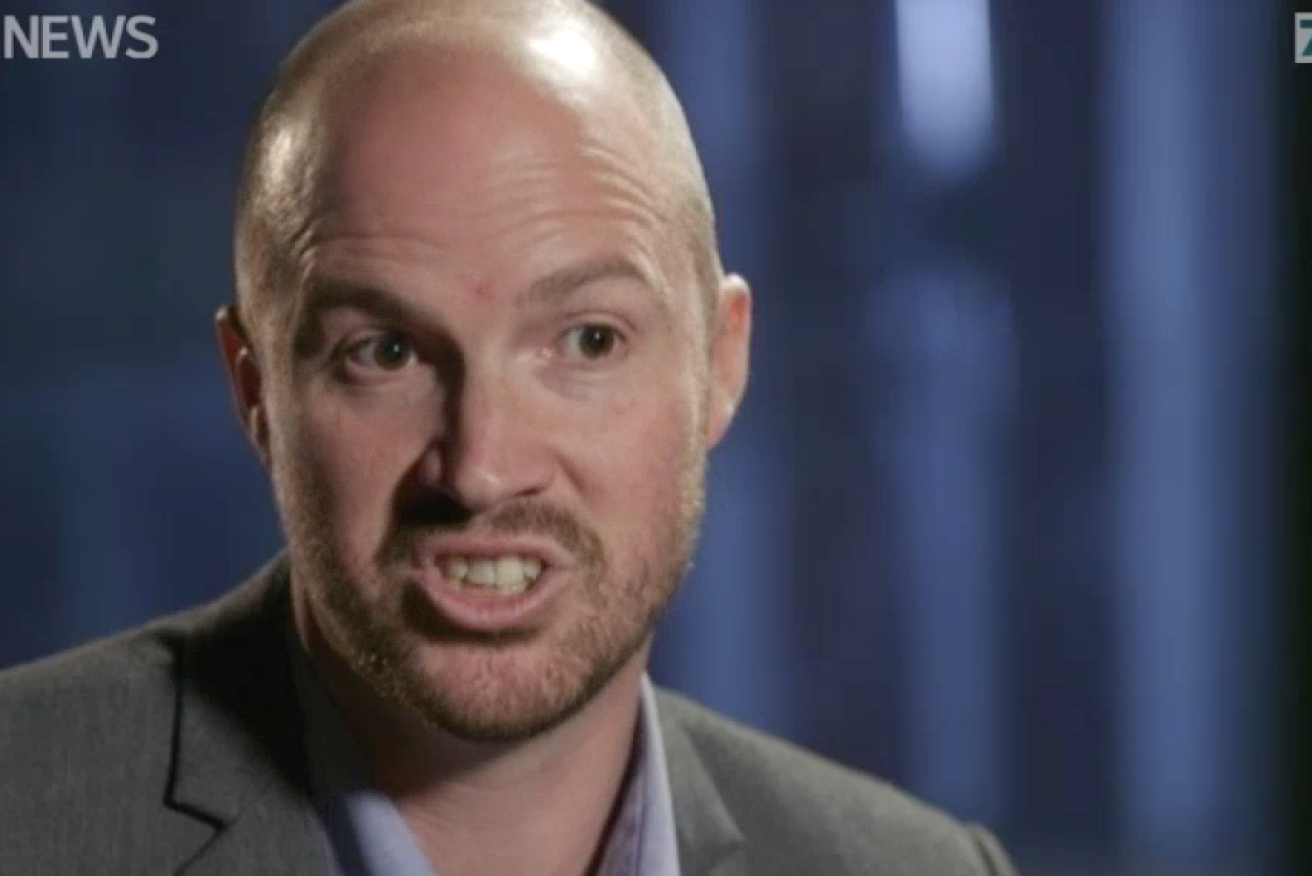Former Home Affairs insider calls for Nauru and Manus Island refugees to be brought to Australia

Former Home Affairs insider Shaun Hanns speaks out about asylum seekers on Nauru on Thursday. Photo: ABC News
A man who worked for the Home Affairs department until last week fears there will be a high price to pay if the government does not resettle refugees on Nauru and Manus Island in Australia.
Shaun Hanns argues that the federal government’s current policy of offshore detention is not needed to prevent further boat arrivals, saying the boat turnback policy has proved an effective deterrent.
“If we don’t stop this (offshore detention), more people will die,” Mr Hanns told 7.30.
“I don’t want that on my conscience. I am just completely unwilling to have that on my conscience.
“Any delay will cost and it won’t just cost financially. It will be a price paid in blood – people will die.
“It just needs to stop now.”
On Thursday one of the government’s MPs, Julia Banks, backed calls to change the policy on resettlement in Australia, saying we have a “humanitarian obligation to get these children and their families off Nauru”.
Policy ‘driven by two departmental myths’

Prime Minister Scott Morrison is under pressure on Nauru and Manus Island. Photo: AAP
Mr Hanns is no bleeding heart. He is a firm believer in strong borders and boat turnbacks.
“The risk of death on that passage from Indonesia to Australia is so high,” he said.
“It is roughly equivalent to people trying to survive through the Syrian civil war.”
But he also says there is no reason not to resettle those refugees still on Nauru and Manus Island in Australia.
“The ongoing refusal to resettle people, believing that it will somehow overwhelm the system if we do so, is irrational,” Mr Hanns said.
He believes the resistance to changing policy is driven by two myths within the department.
“The first is that any kindness we show will restart the flow of boats from Indonesia,” he said.
“The second is that this flow of boats would be so large it would be able to overwhelm the system as it stands.”
He argues that, in fact, there have been already been two “acts of kindness” – in 2014, when almost half the people who arrived in Australia after 2013 were allowed to stay in the community and in 2016, when a resettlement deal with the United States was announced.
He argues that neither led to a surge in boats and points to this as evidence that the boat turnback policy alone is sufficient.
“We still haven’t seen the rise in boats,” he said.
“In 2017 there were 10 more people that tried to get to Australia as opposed to 2016. So it had no impact whatsoever.”
Mr Hanns says that what is stopping asylum seekers in Indonesia making that decision to try to get here by boat is “what’s happened to the people around them in the community, and that focus is what has happened with the last boat”.
And their experience of what happened to the last boat is “it came back to Indonesia with the people on that boat being significantly poorer”.
Government MP joins call for resettlement
It was Kevin Rudd who declared in July 2013 that no asylum seekers who arrived by boat would ever be allowed to settle in Australia.
Successive prime ministers have upheld this controversial policy, despite widespread criticism, including from the United Nations.
Now there has been a change in public mood in Australia.
“The nexus between the children and families on Nauru and keeping the boats stopped has been overridden by the plight of sick children and our humanitarian obligation to get these children and their families off Nauru,” Ms Banks told Parliament on Thursday.
“What was a defensible argument in the past is weakened now with the current facts.
“The US arrangement is living proof that there has not been a resurgence of boats coming to Australia, and nor will an arrangement with New Zealand.
“The integrity and strength of our border protection policies will remain.”
Solution is ‘one act of grace’

Julia Banks says the decision to bring refugees to Australia should be a humanitarian one. Photo: juliabanks.com.au
Recently the government has escalated an informal program of removing children from Nauru.
Eleven children were brought to Australia for medical treatment on Monday, leaving 52 on the island.
Opposition parties have put forward amendments designed to get all remaining children off Nauru, including taking up New Zealand’s offer to resettle 150 refugees.
But the government is maintaining its tough public rhetoric.
“We could have made progress this week with the New Zealand solution but the parties are too concerned to not back down on their position to make concessions so that we can find a solution,” Ms Banks said.
“The message would be clear, our solution to this situation that it is a one act of grace.
“A humanitarian decision – a decision that comes from our hearts, but our minds will ensure we have the capacity to maintain or secure borders.
“Just as nothing surpasses the unconditional love a parent has and feels for its child, nothing should be stopping or delaying us getting these sick children and their families off Nauru.
“The major parties should put [aside] political point scoring, horse-trading, comparative politics and trying to think of the next clever wedge … to make MPs themselves or their respective parties look good.”
Now freed of his public service gag, Mr Hanns has outlined his arguments and experiences in dealing with asylum seekers in a 4000-word essay in the forthcoming issue of The Monthly.
But he thinks the solution is simple.
“Just remove the people on the island and keep the rest intact,” he said.
–ABC








